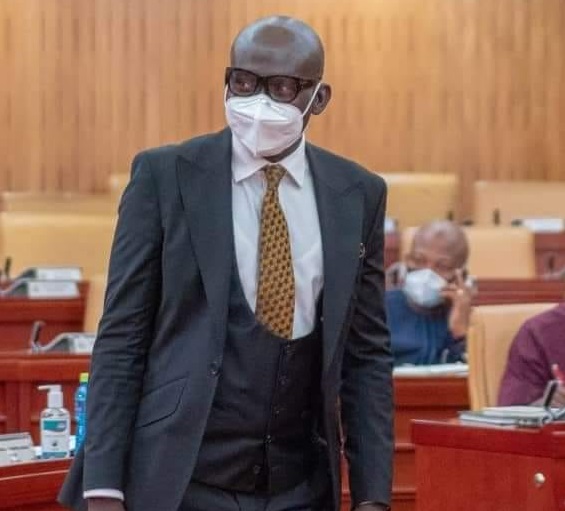|
Getting your Trinity Audio player ready...
|
The Attorney-General and Minister of Justice, Godfred Yeboah Dame, is concerned that the trial against the former CEO of the Ghana Cocoa Board (COCOBOD) Dr Stephen Opuni is yet to come to a close.
Mr Dame is of the view that the failure of the State and by extension the judiciary to prosecute the former appointee under the John Mahama administration is unacceptable, adding that such long trials affect the fight against corruption.
Dr Opuni and a businessman Alhaji Seidu Agongo have been in court for the past six years. They are facing 27 charges, including defrauding by false pretences, wilfully causing financial loss to the State, money laundering, and corruption by a public officer in contravention of the Public Procurement Act.
They have both pleaded not guilty to the charges and are on a GH¢300,000.00 self-recognizance bail.
Speaking to journalists in Accra, Godfred Dame said more complex cases are resolved speedily and is surprised that Opuni’s case has taken this long.
“We have witnessed the failure of the High Court to resolve the Opuni trial for the past six years. This is simply unacceptable. It is unacceptable for such a case to stay in court for six years when other more complex cases of murder are speedily resolved.
“This development deepens the injustice and inequity in our society and the judiciary clearly has to play its part and the judges also in eradicating corruption.”
Ghana making strides in corruption fight
Mr Dame has also maintained that despite Ghana’s stagnate position in the Corruption Perception Index (CPI) for the past three years, the government since its assumption of office in 2017 has taken bold steps to curb and fight the penchant for corruption in the country.
Ghana has placed 72nd in the 2022 edition of the CPI. The report, which was released on Tuesday, 31 January 2023, and announced by Transparency International (TI) saw Ghana score 43 out of a total of 100, a score it has maintained for the past three years.
However, speaking to journalists for the first time since the report was released, Dame noted that the government is committed to fighting corruption through the numerous institutional reforms it is putting in place and in no time, Ghana will improve its CPI.
“The effort to tackle corruption will only succeed if we understand the way corruption works. Corruption is mostly engaged in by government officials, businesses, Civil Society, the media, public servants, the church and virtually all members of the public. The system is in place for preventing and detecting corruption if it occurs. That must also be coupled with a strong mechanism for punishing crime.”
“Since 2017, the government has focused on building a system for the prevention and detection of corruption. It has undertaken arguably the boldest initiatives since independence to reform and strengthens Ghana’s capacity to tackle corruption, especially in the public sector. Some of these bold initiatives are the Right to Information Act 2019, Witness Protection Act, 2018, the Fiscal Responsibility Act 2018, and the amendment of the Criminal Offenses Act amongst others,” he said.
He pointed out that the fight against the canker is evident in the institutional reforms the government is putting in place along with the passage and amendment of laws that will help tackle and curb corruption.
According to him, the financial empowerment of antigraft institutions like the Office of the Special Prosecutor, and the digitization of our Ports and Courts amongst hosts of digitisation drive spearheaded by the government is proof that it is committed to rooting out corruption.
SOURCE: citinewsroom.com and Asaase Radio contributed to this story





